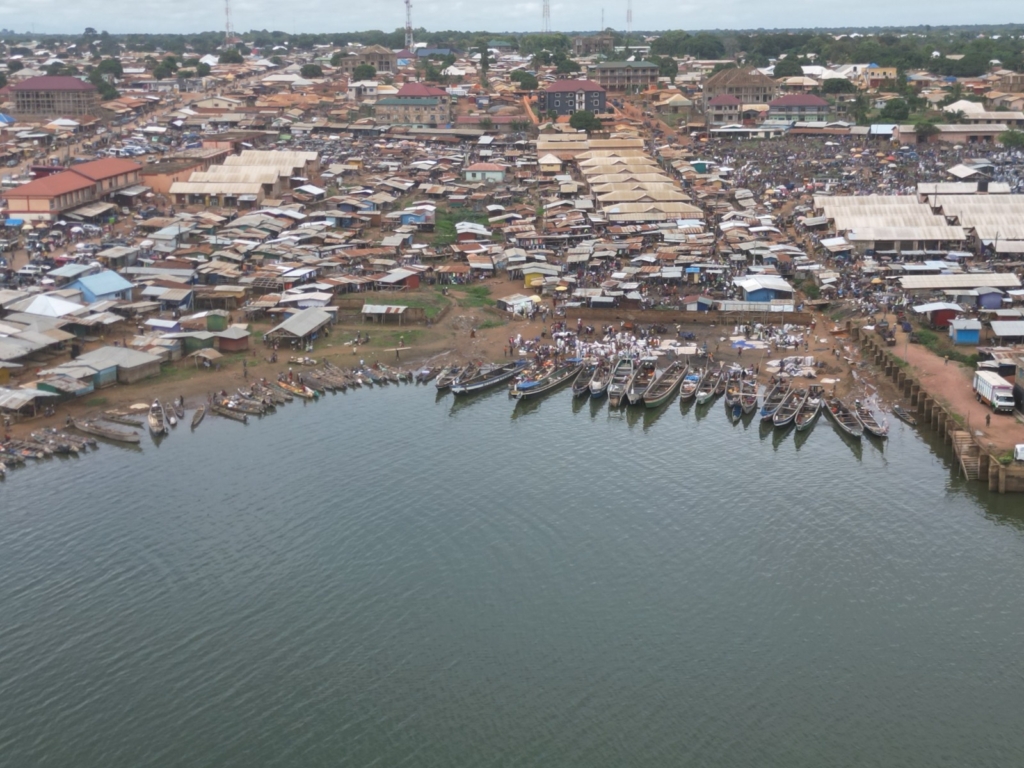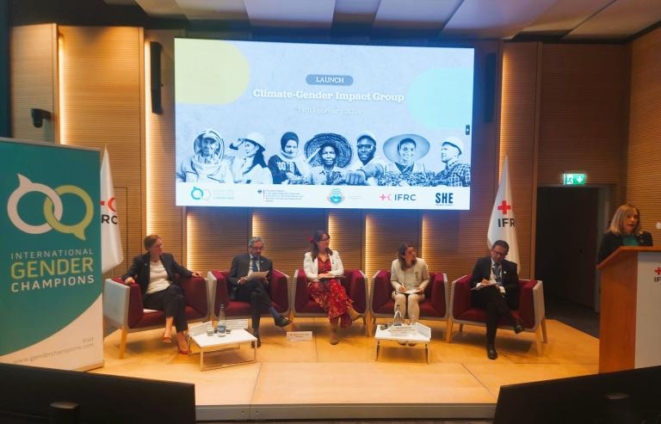The impact of the climate crisis is far from “gender neutral”, according to the World Meteorological Organization (WMO) Secretary-General, Celeste Saulo.
She emphasised that women and men experience the effects of weather and climate differently, necessitating the provision of gender-sensitive information and services.
Celeste Saulo highlighted the effectiveness of women in mobilising communities during disasters, their frontline role in recovery efforts, their crucial knowledge in natural resources management, and their significant contributions to climate adaptation and mitigation.
“Women are very effective at mobilising communities in the event of disasters. They are at the frontline in moving forward with recovery. Women further hold key knowledge in natural resources management, and are key actors in climate adaptation and mitigation,” she said.
Speaking at the launch of the International Gender Champions Climate Impact Group, WMO Secretary-General Celeste Saulo emphasised the untapped potential of women as leaders and advocates in addressing climate change and promoting sustainable development.
The International Gender Champions (IGC), established in 2015, is a leadership network with over 320 active Champions and 400 Alumni, including heads of international organizations, diplomatic missions, and civil society groups.
Since assuming her role, Celeste has prioritised fostering diversity within WMO, aiming for equitable representation in terms of gender, region, and culture. She is dedicated to implementing the updated WMO Gender policy of 2023, acknowledging the disproportionate impact of climate change and weather-related disasters on women and girls, who often face barriers to accessing vital resources and information.
“Women and girls are disproportionately affected by climate change and weather-related disasters. In addition, we know that they have less access to climate information, early warnings, agricultural advisory services, mobile phone technology and financial credit,” she told the International Gender Champions event, hosted by the International Federation of Red Cross and Red Crescent Societies.

The disproportionate impact of climate-related events on women has been evident, such as in the Indian Ocean Tsunami of 2004, where more women than men perished due to factors like limited swimming skills and hindered movement by long clothing. Studies, like one in Senegal, reveal that female farmers, planting a month later than males, need specific information on rainfall deficit forecasts and early cessation, crucial for their agricultural planning.
WMO's initiatives focus on overcoming barriers faced by women and marginalized communities, aiming to enhance access to resources and decision-making tools. Programs like those in Fiji, supported by partners like CREWS, strive to integrate gender considerations into early warning systems, aligning with government policies. Celeste is committed to leveraging her position as an international gender champion to promote the mainstreaming of gender considerations in climate policies.
“We have no time to lose. We stand at the intersection of inequality and climate change, and our strategies must reflect the urgency of the times,” said Celeste Saulo.
Latest Stories
-
All payments received from our contract with GRA are performance-based, says SML
19 mins -
Marrakech 2024: Ghana’s para-athlete Zinabu Issah wins Gold
21 mins -
Our contract with GRA followed due process; ignore contrary reports – SML
22 mins -
SML is just Agyapa in suit and tie – Bright Simons
57 mins -
Domelevo condemns selection of KPMG to audit GRA/SML contract as illegal and unprofessional
1 hour -
SML/GRA contract: OSP should have released its report by now – Inusah Fuseini
2 hours -
KPMG report exonerates us – SML
2 hours -
Works and Housing Ministry seeks lasting solutions to challenges with stakeholders engagement
2 hours -
President’s statement on GRA-SML contract underlines Fourth Estate’s revelation – MFWA
2 hours -
Our services are one of a kind, not done by NPA – SML insists
2 hours -
We operate legally and collaborate with world-class partners – SML
3 hours -
Director urges parents to protect children from abuse
3 hours -
Imani-Ghana criticises Akufo-Addo for not lauding Fourth Estate’s contribution to social development
3 hours -
Man remanded for allegedly stabbing businessman with broken bottle and screwdriver
3 hours -
Population in Kumasi Central Prison surges to 1800, threefold exceeding capacity
4 hours

